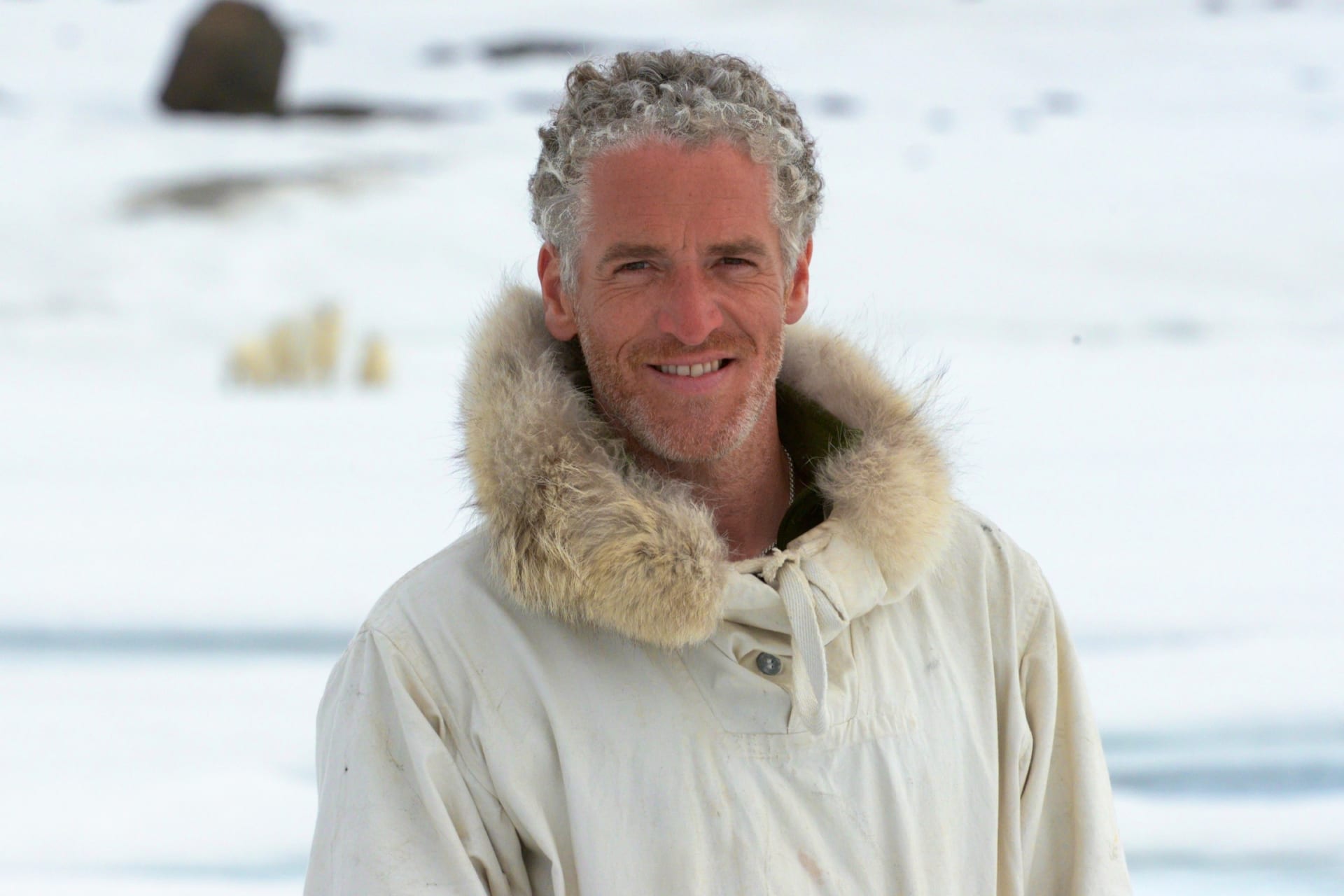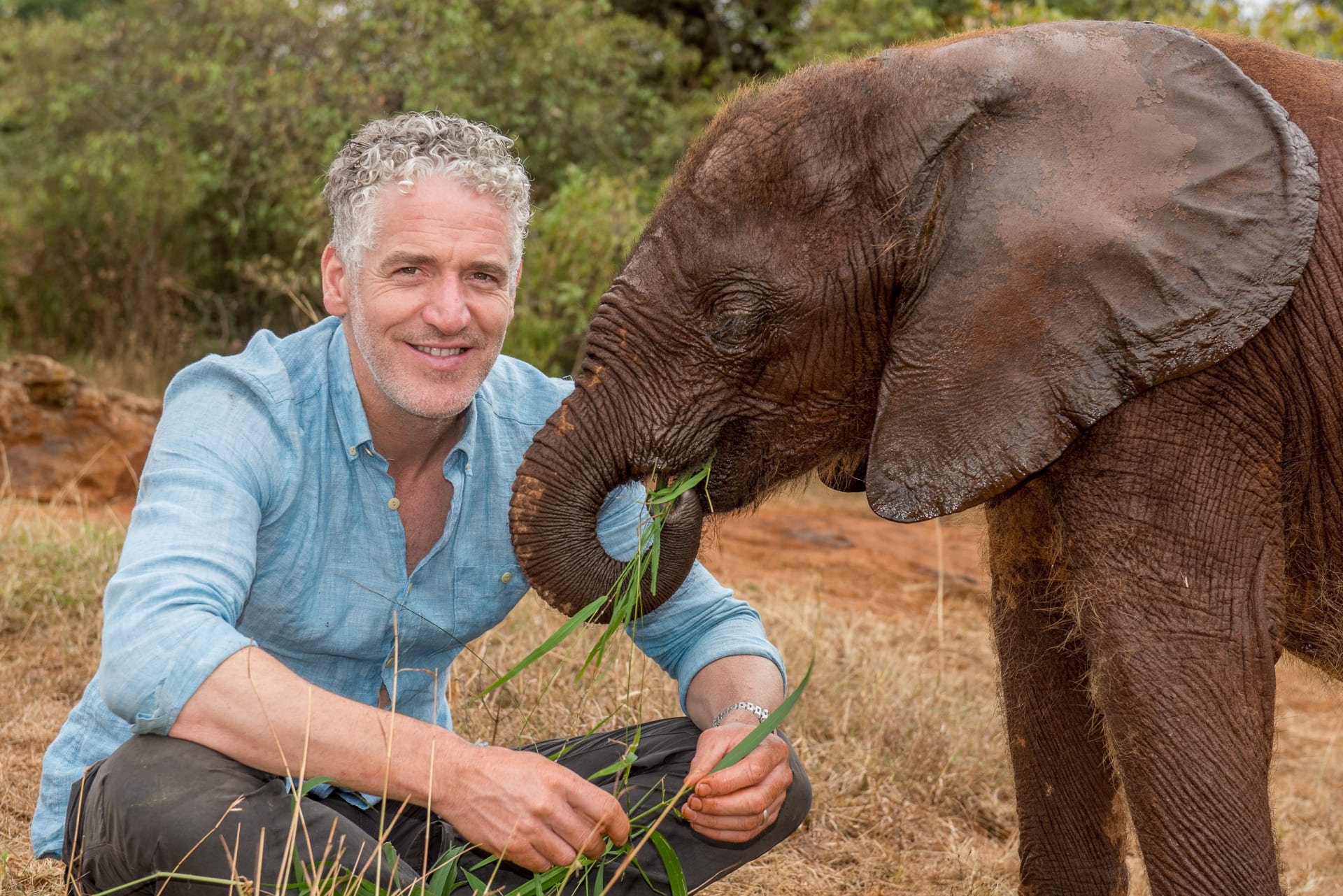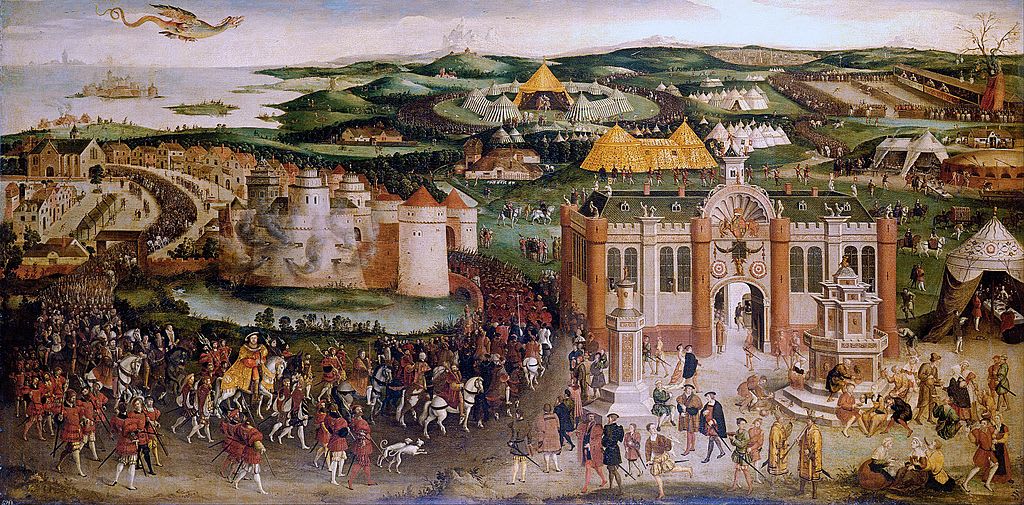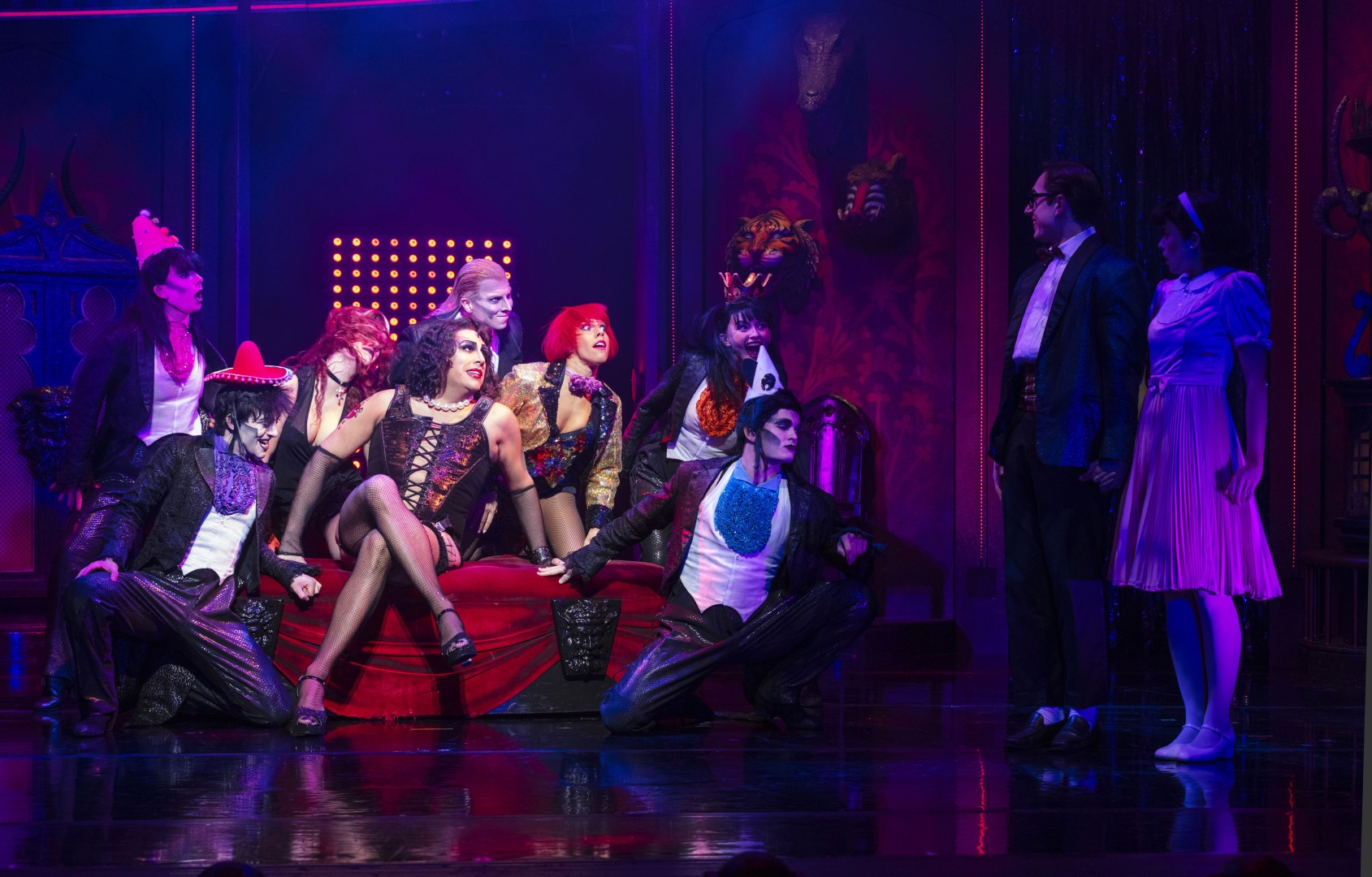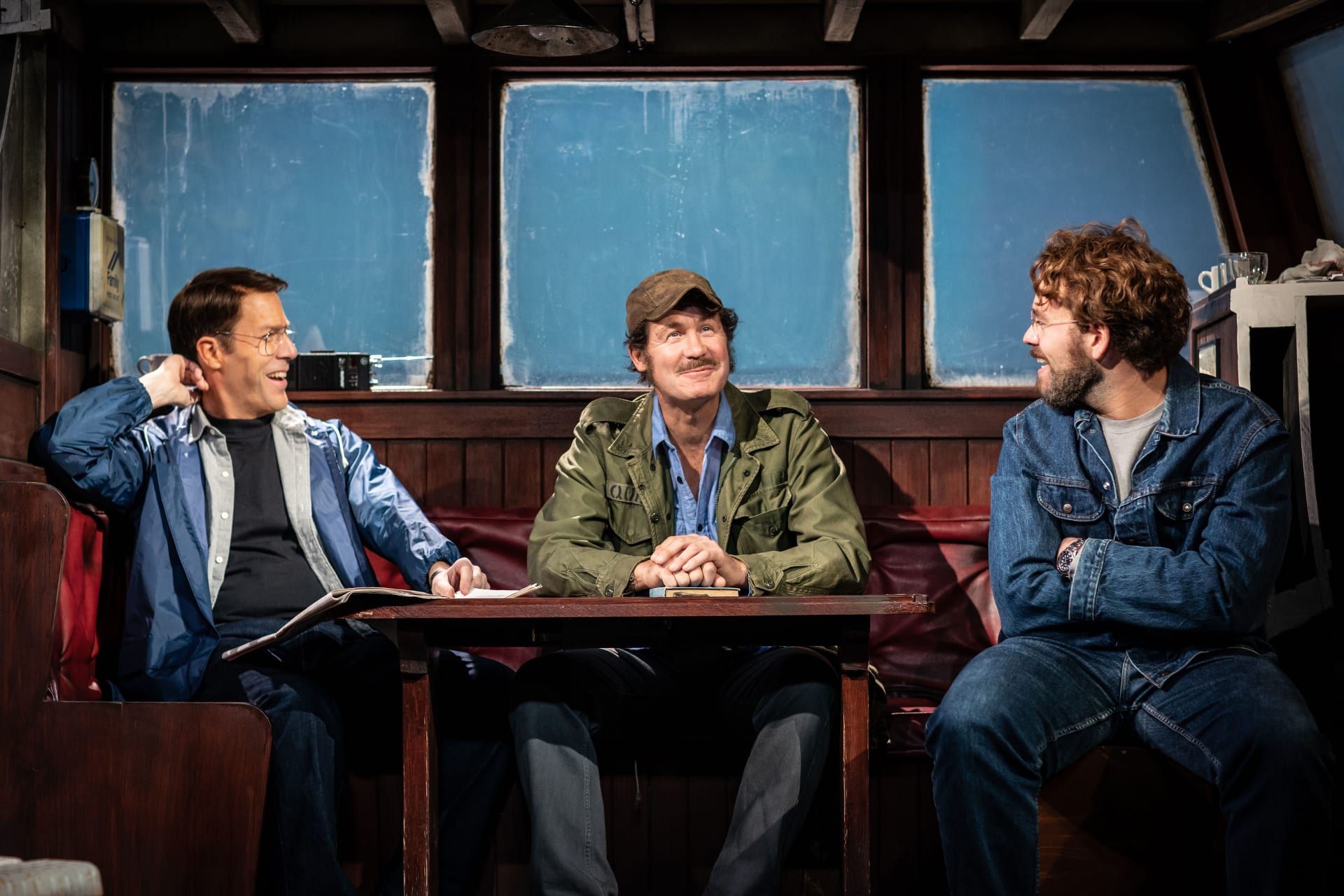In November Gordon Buchanan, who presented Equator from the Air on BBC 2 earlier this year, brings Animal Families and Me to Oxford. The highly acclaimed television wildlife cameraman and presenter will share an insight into his incredible 25-year career filming some of the world’s most fearsome and majestic animals. Hailing from the Isle of Mull in western Scotland, his passion for raising awareness of the world’s most endangered species and habitats has led to expeditions around the globe. Here he talks the High Artic, eating monkey, and the harm being done to the natural world.
You’ve been a cameraman and a presenter of wildlife programmes. Do you prefer being in front of the camera or behind it?
I didn’t set out to be a presenter, it was quite a natural progression. Wanting to tell stories and sum up experiences can be done with picture and with words. Filming and being filmed have their own challenges but I find it easier being behind the camera. My first love was filming and I really miss it if I am in front of the camera too much. I get a lot out of both so it’s all about getting the right balance.
Did you always want to work with animals and if so why?
I’ve always been interested in animals. I worked on a croft and riding centre from the age of 11 to 15 so enjoyed being around domesticated animals and I always had a fascination for wild animals whether in the flesh or on TV. I find being around animals very calming. You can get lost in their behaviour or just enjoy their beauty.
What’s the most inhospitable place that you have visited for work?
The High Arctic is pretty inhospitable. A little mistake can prove fatal but in a way that’s what I love about it. You have to think constantly about what could possibly go wrong and plan ahead for worst-case scenarios. You need the right clothes, the right equipment, and to know what to do should things take a turn for the worse.
Is there anywhere you have visited that you didn’t want to leave?
Last year while filming for the Equator from the Air series, I was in a place called Misool in Raja Ampat, Indonesia. Not only are the people wonderful and the food delicious, the Misool area has some of the best coral reefs in the world. We had limited time so only managed two dives before leaving. It was really tough to travel so far to such a special place to realise that I could have happily spent two months there rather than two days.
When you are working abroad you must occasionally be given something unusual to eat. Which delicacies have lasted in your memory?
I’ve really cut down the amount of meat that I eat. If you can be 90% vegan, I’m 90% vegan. But in the past while living and working with local and tribal people, I’ve eaten what they eat. So things like rat, monkey, snake, pig testicles, tortoises, armadillo, spiders and ants have been on the menu.
Filming Equator from the Air must have been fascinating as well as alarming – what is the most shocking fact you learnt?
It was a shocking series to make. To see first-hand the damage that’s being inflicted on the natural world. The extent of illegal logging in Brazil was most shocking, in that due to the richness of the Amazon, we will be losing some species before we even know of their existence.
What do you think of animal trophy hunters?
There is something perverse about the killing of an animal for the trophy alone. Hunting an animal to eat is very different. I really can’t understand the mentality of a trophy hunter whereby that animal is dead, stuffed and mounted rather than alive and living free.
We read of so many species on endangered lists – which do you feel are most at risk?
Hard to pick just one. The loss of forests in Malaysia and Indonesia has greatly reduced Orangutan numbers, but more worrying than that for me are the millions of sharks killed internationally every year. We tend to care more about animals like Orangutans than we do sharks but the threat to shark species is greater.
If you weren’t doing what you do, which job would you have done?
I wanted to be an international show jumper when I was younger. The thrill of taking a big horse over big jumps is hard to beat when it comes to excitement.

